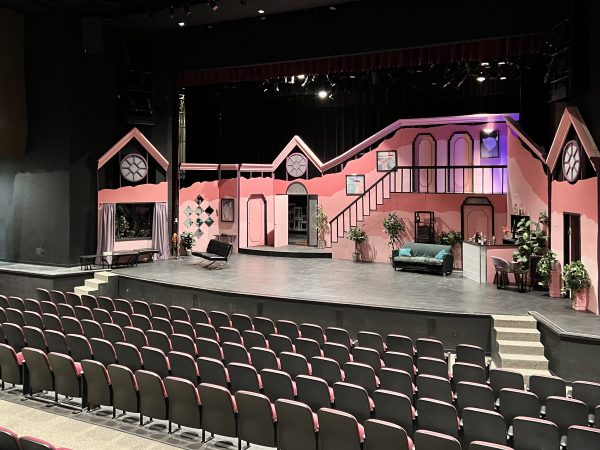Shrine Maidens, Youkai, and a Lot of Bullets

October 27, 2015
In a realm cut off from the rest of the world, there is a magical land where humans and creatures called “Youkai” reside. This place is called Gensokyo, a place of refuge for spirits, demons, gods, and others who have been forgotten by the outside world. The guardians of this realm are the Hakurei family of shrine maidens, whose task is to maintain the barrier between Gensokyo and the outside realm and to resolve disturbances that would put the land in danger. They do so by using an ungodly amount of bullets while dodging and weaving through even more.
First released in 1997 for the Japan-only PC-98, the Touhou franchise is a series of danmaku, or bullet-hell, games created by Team Shanghai Alice, of which series creator Jun’ya Ota, otherwise known as ZUN, is the sole member. If you’ve never heard of the games, that’s understandable. None of the Touhou games have ever been localized and sold outside of Japan. Usually, the most exposure one might have to the series outside of Japan would be to any of the fan-made content, though that will be covered later. There are some dedicated sites that provide the games as well as a translation patch though, so not all is lost for outside fans.
The same basic premise is, more or less, repeated in the core games with the occasional variation: An incident occurs somewhere in Gensokyo, which can range from minor happenings like a ship dropping out of the sky to major threats such as the sun being blocked by a red mist, and it’s up to the latest Hakurei shrine maiden to resolve the incident. That shrine maiden is the main character of the series, Reimu Hakurei, and has been playable for most, if not all, of her appearances. Depending on the game, Reimu can be joined be one or more allies, such as the kleptomaniac witch with a giant laser, Marisa Kirisame; the maid of the Scarlet Devil Mansion with a penchant for knives and stopping time, Sakuya Izayoi; and fellow shrine maiden of the Moriya Shrine and descendent of the goddess Suwako, Sanae Kochiya.
Before starting a game, the player first picks which character they want to use, followed by the “style” and corresponding “Spell Card” they wish to assign to that character. The style refers to the way your character shoots, such as homing bullets, lasers that orbit around your character and other functions. The Spell Cards act as “bombs”, which are used to clear the screen of weaker enemies and projectiles if things start to become crowded. They do heavy damage and should be usually saved for bosses. Lives and Bombs are a precious commodity, as it only takes one hit to lose a life and refilling either happens takes time and skill.
These games are easily some of the hardest ones out there. While bullet-hell games are difficult in general, Touhou is one of the most prolific in its difficulty, leading to the saying that once you master Touhou, “you can dodge rain”. Projectiles of different types, sizes, and colors will easily fill up the screen on the higher difficulties. Memorization and knowing the hit-box of your character, the bosses, and the bullets are vital in order to get through a game successfully without using a Continue.
Each game contains six levels, but only five are available on the easiest difficulty. At the end of every level, the player must fight a boss, which puts all of the previous minor enemies in the stage to shame and is one of the series’ highlights. Alternating between normal shots and their own Spell Cards, your skills will be put to the test in trying to whittle down their health while avoiding the onslaught of projectiles that come in their own patterns. For those who conquer all six stages and bosses without losing a Continue have an additional challenge to undertake. An Extra Stage will unlock and is always the most difficult level in the game, featuring a bonus boss that will take all of your concentration and memorization to conquer them, as you cannot continue once you lose all your lives. Against stupidly powerful foes like Flandre Scarlet, Yukari Yakumo, and Suwako Moriya, this is the last barrier between you and mastering the game.
Going back to an earlier point, as the series has never been released outside of Japan, about the most exposure one might have to the series is the fan-made content, such as animated shorts, machinima, music, fan-games and other such content. Allow me to tell you that the Touhou fandom is one of the most insane fandoms out there in terms of how much content is made. Albums of popular Touhou tunes are covered by bands and sold online, fan games of every genre are made involving the series, and entire animated works have been made by fans alone to honor their favorite series.
One of the most notable “fanimations” would be Fantasy Kaleidoscope ~Memories of Phantasm~, a series of currently six episodes that cover the events of the sixth, seventh, and ninth games of the series; The Embodiment of Scarlet Devil, Perfect Cherry Blossom, and Phantasmagoria of Flower View respectively. The studio Manpuku Jinja animates while the group Yuuhei Satellite provides the music. Each episode, beautifully animated due to the time it takes to release them (about one or two years of production before release), don’t have any voices to go along with the existing sound effects and music, but are later dubbed over by fans. In the case of the first three episodes, one voice actress, Pika Aizawa, provided the voices of every single character, showing enough variety and differences between the cast that it doesn’t sound like one person is just talking to herself. The episodes are available to watch on YouTube and some channels have provided English subs for them.
Though the majority of the games have never been sold in America, there is still a passionate fan following present. Even if one isn’t a fan of bullet-hell games, they could still enjoy the multitude of content provided by other fans, from music remixes, animations, fan games, and even some manga and doujinshi. There’s something for everyone in the land of Gensokyo.














